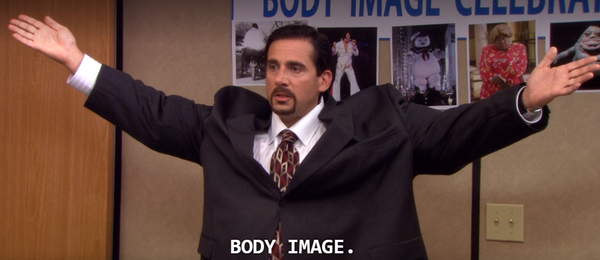Let's face it: we've all had that extra-bad day when even a little thing can set us off, no matter how insignificant it may be; a dropped phone, a spilled glass of water, or even missing the green light by a second can be that last straw. You think to yourself, What else can go wrong? (And, as we all know, something always can.) And you... just... explode!
But when you're angry, annoyed, frustrated, or stressed, you don't think straight. Rather, you continue to feel these emotions until they take over, leaving you with a cloudy mind and cloudy judgement. Which, as we all know, will get you nowhere.
Last fall, I took a class called, "Mindfulness and Mediation." This course met every Thursday, and for an hour and 15 minutes, we tried out different meditation practices and yoga sequences. I personally love yoga, but I had never really attempted meditation, so I was eager to see what we would learn.
As college students, we're constantly juggling exams, extracurriculars, jobs, and our personal and social lives, trying to keep it all together. And what is the number one feeling that can come from this? Stress. Yet stress kills, physically, mentally, and emotionally; it is a counterproductive state to be in. So throughout the course, we learned ways to combat stress in our everyday lives. Because your body deserve more than that. Your mind deserves more that that. And you deserve more than that.
Out of all of the ways we learned to deal with stress, my ultimate favorite was don Miguel Ruiz's "The Four Agreements." They are as follows:
1. Be impeccable with your word.
As corny as it is to say that, "Honesty is the Best Policy," it is! Be truthful to those around you, but more importantly, be truthful to yourself about your own feelings. Because only then can you work towards making any situation better.
2. Don't take anything personally.
This is definitely a hard one to grasp. Because when someone hurt our feelings or offend us, its difficult to not feel like they're personally attacking us. Yet when people speak, they are coming from their own place, which is something that we won't understand. So don't take everything to heart; instead, try to look at something from someone else's point of view.
3. Don't make assumptions.
We should never assume things about other people based off of what we see, for we don't know their stories or their experiences; we only know our own.
4. Always do your best.
This one is my personal favorite. As I've written in a previous article, I've grown up believing that we should always try to do our best in every part of life. But I've since learned that our best changes on a day-to-day basis, just as we ourselves change. So always strive to be the best version of yourself that you can be today.
Yet meditation is hard. Its hard to be still, to clear your mind. Sometimes, you'll just keep thinking about other things, rather than focusing on the present. Sometimes, you'll find yourself doing well in class, but forgetting everything you learned the second you step outside and something sets you off. And sometimes you'll be so exhausted that closing your eyes and listening to the soft background music puts you right to sleep (trust me, it's happened before)!
Meditation is a process; it takes a lot of time, and it takes even more effort. The most important thing to do is to keep going, keep trying. Because, like everything else in life, there's no other way to go but forward.





















